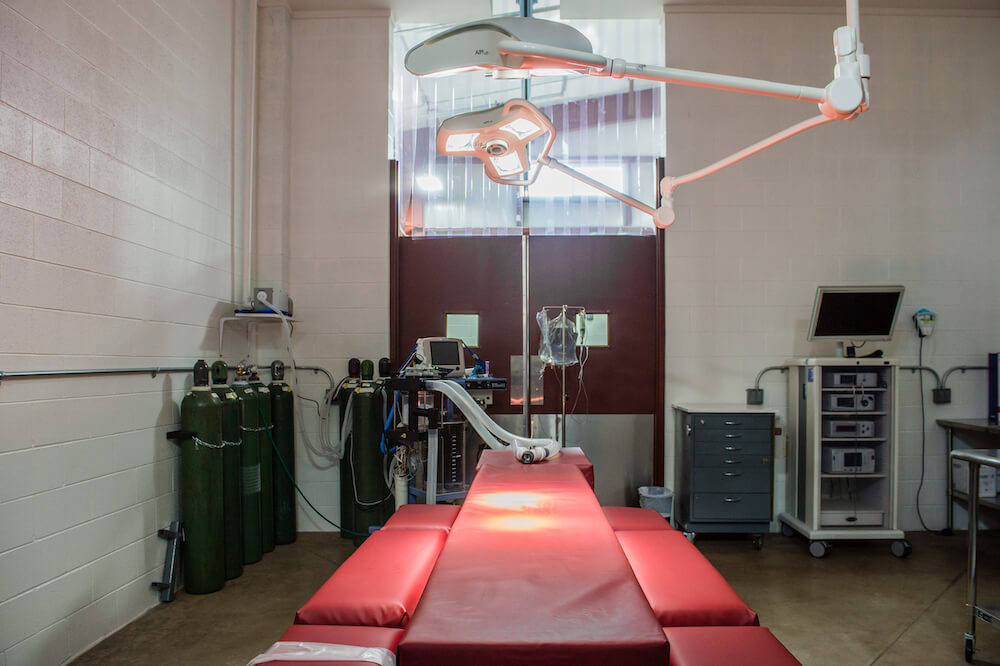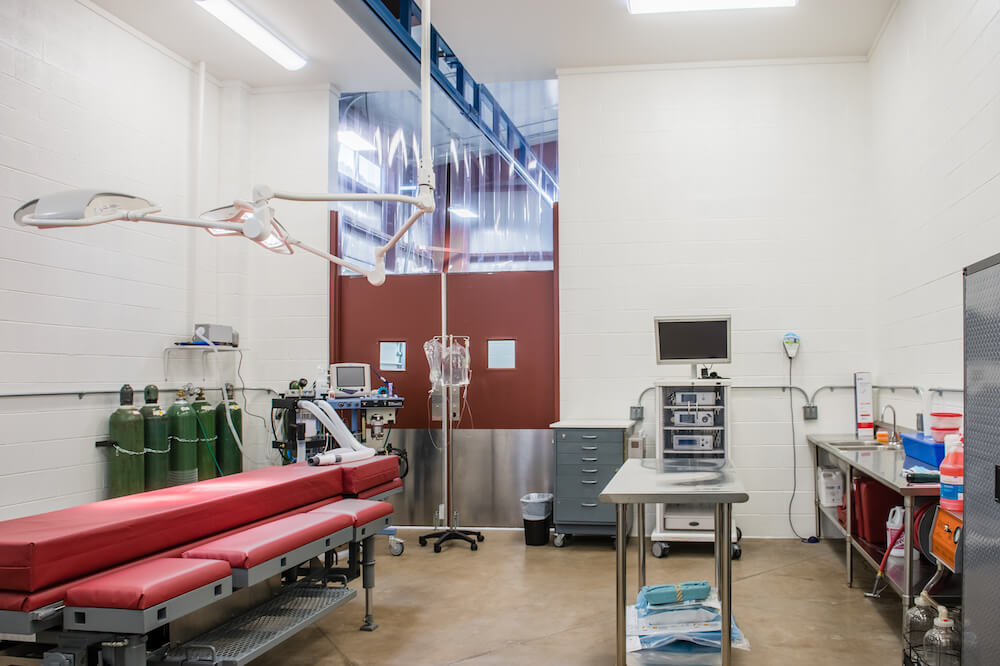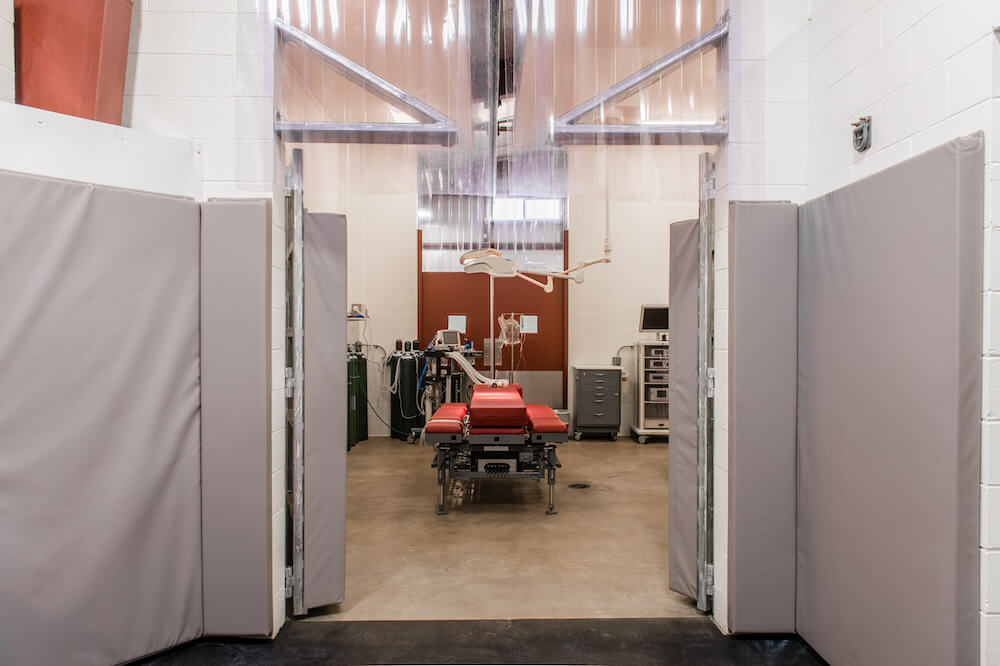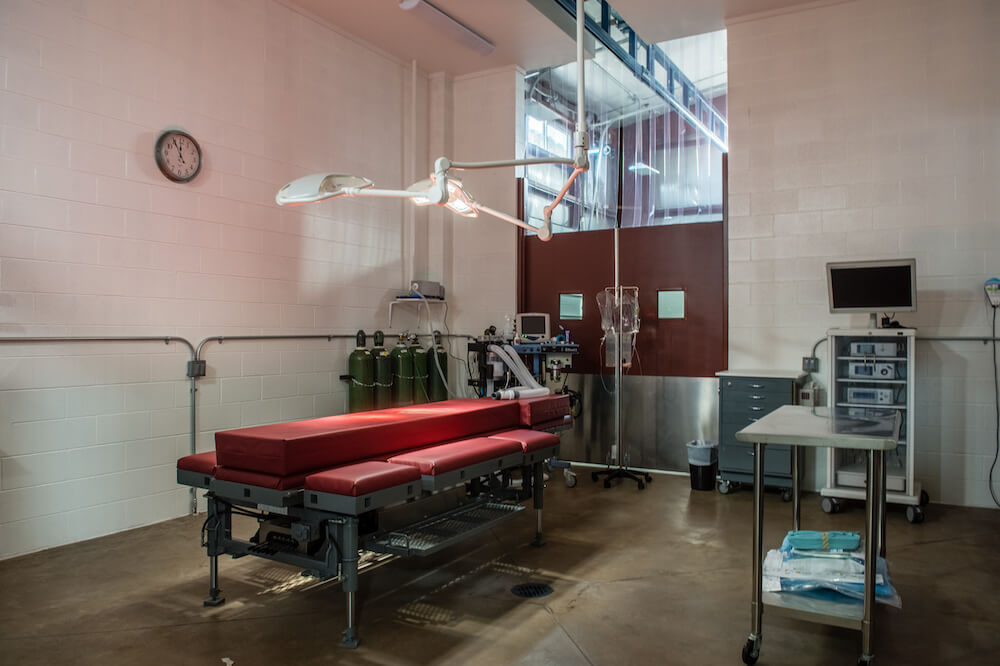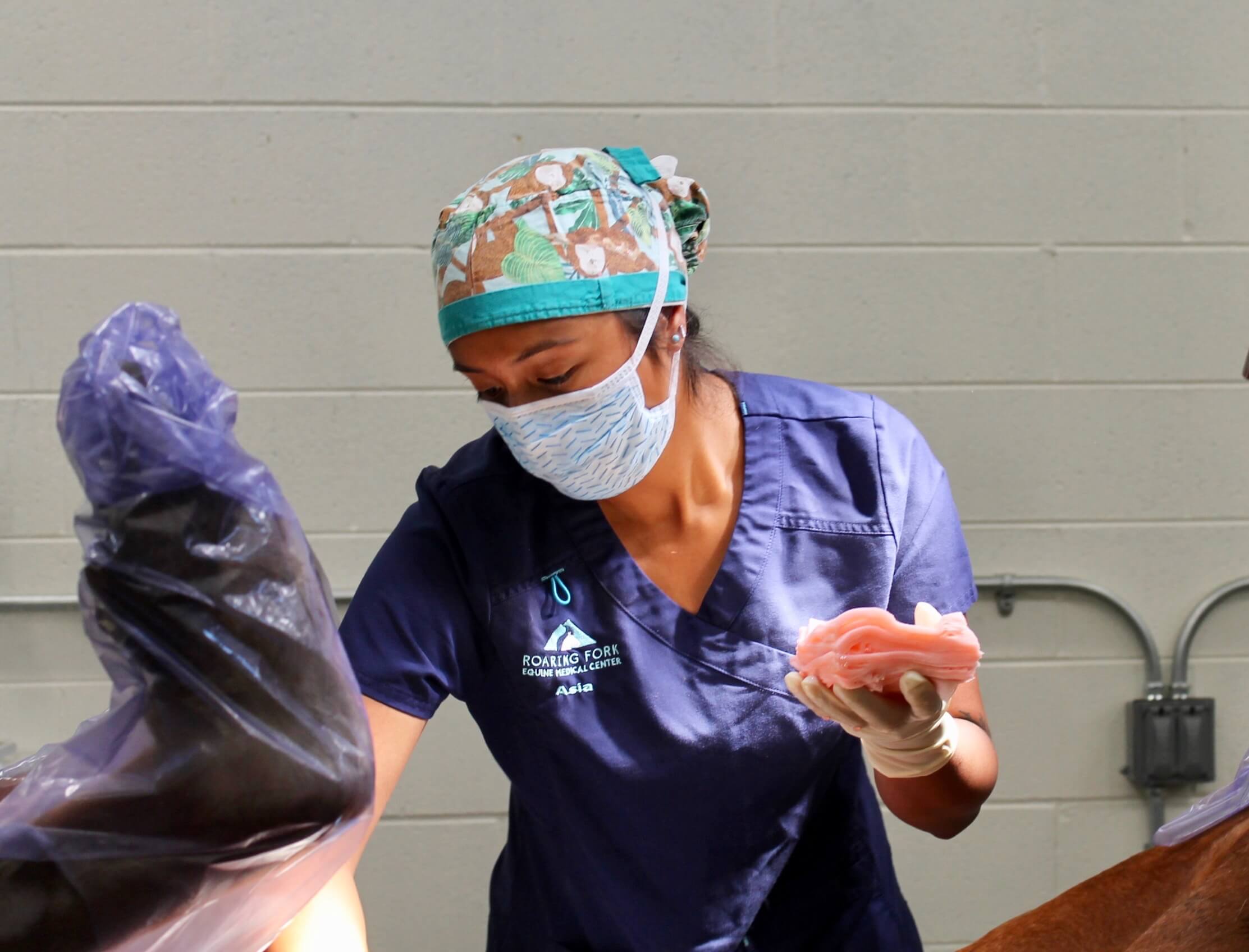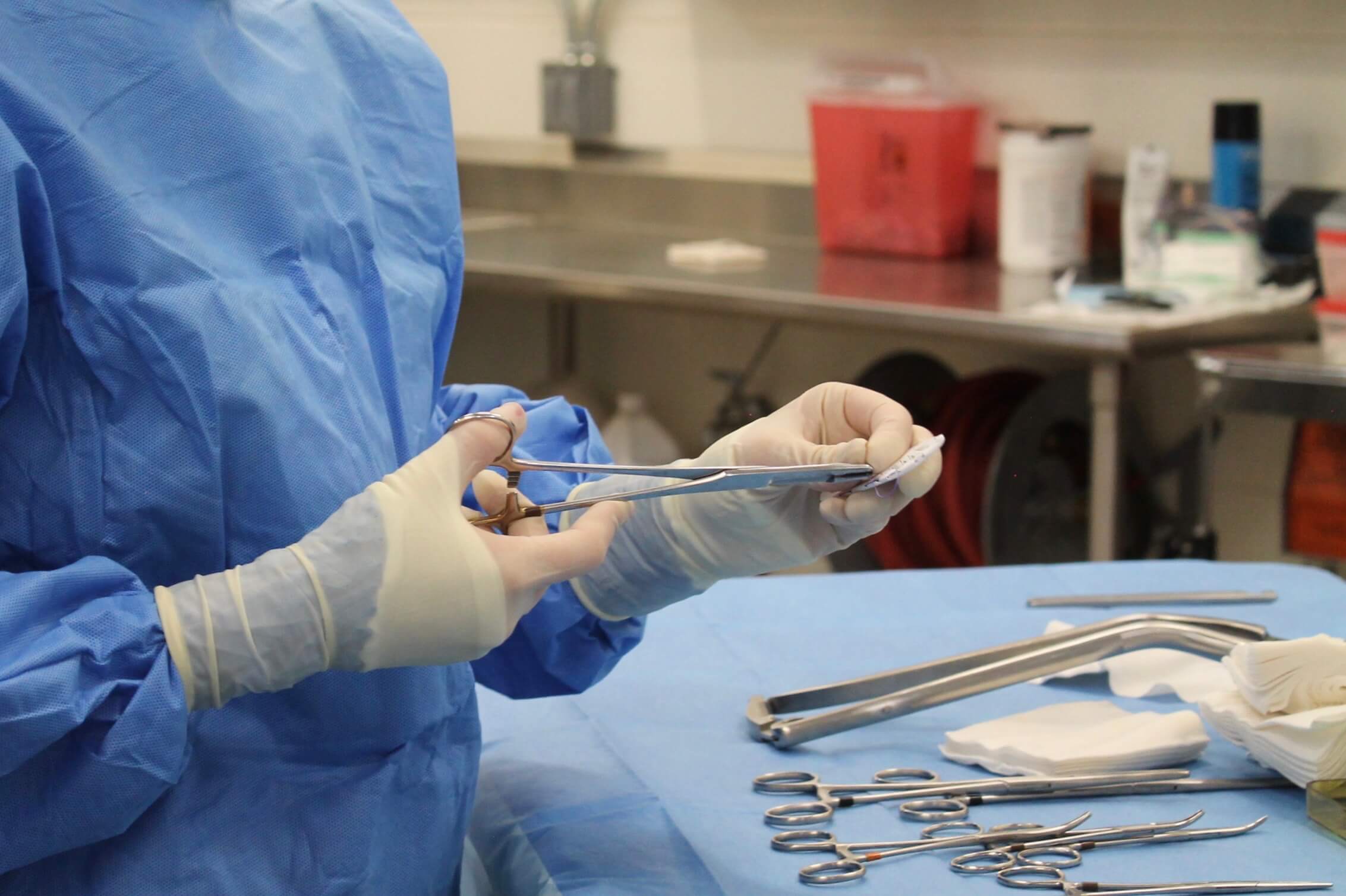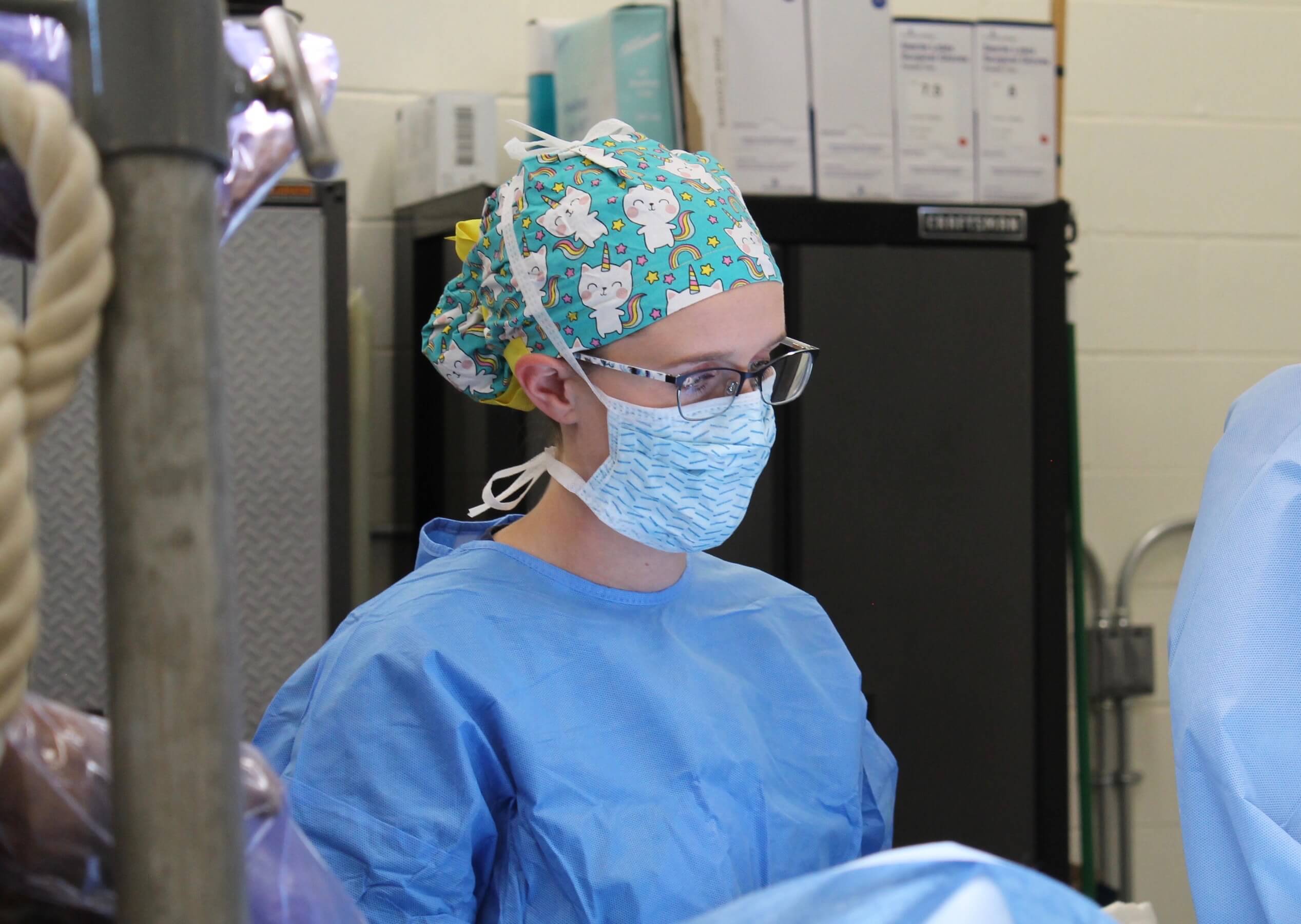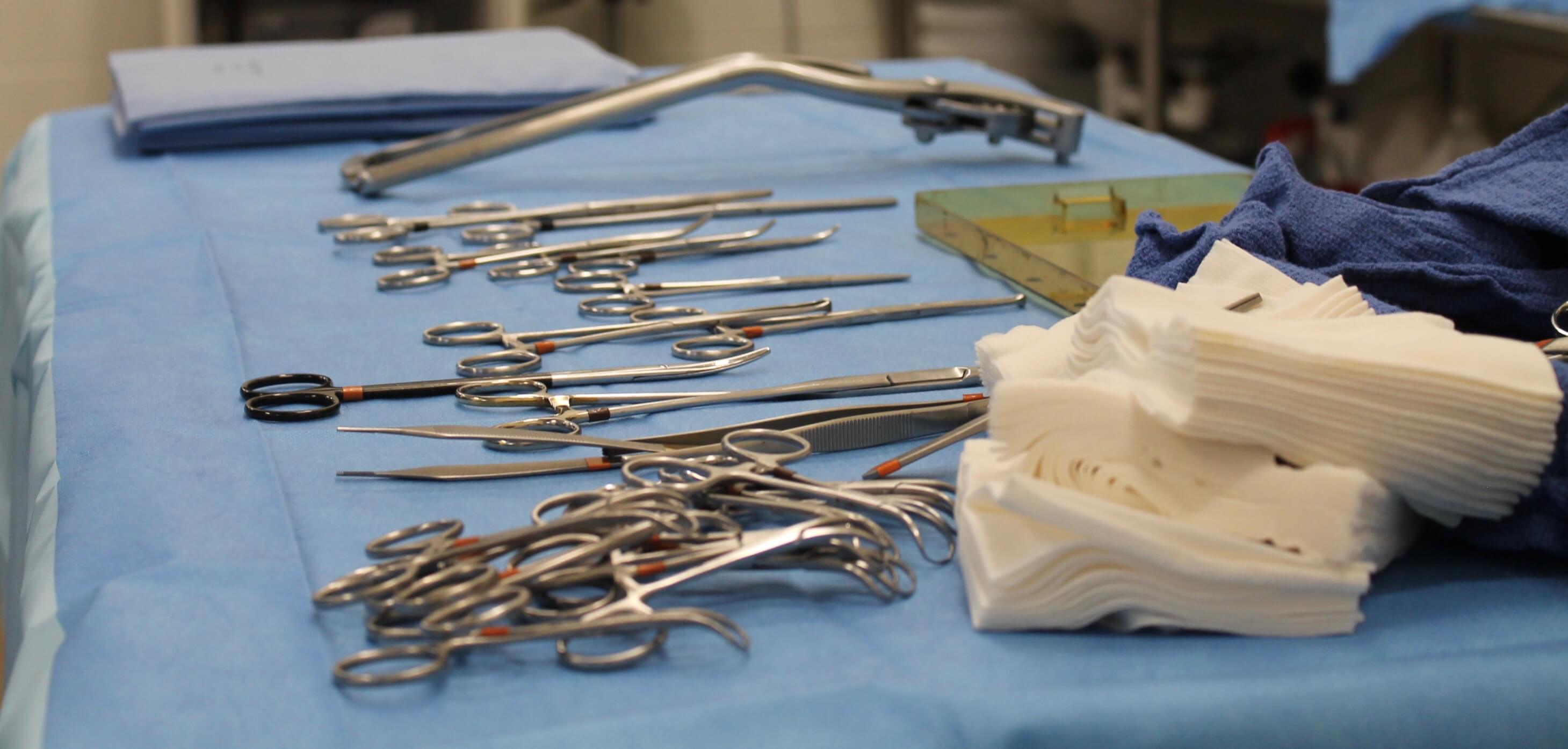The Roaring Fork Equine Medical Center is equipped with the most modern technological advances and experienced surgeons to provide elective and emergency surgical services to the horses of western Colorado, Eastern Utah and Southern Wyoming.
These modern facilities and knowledge enhance surgical capabilities and reduce the risks of surgery and general anesthesia. From arthroscopic joint surgeries to emergency colic surgery, the Roaring Fork Equine Medical center is prepared to provide the highest level of veterinary care to your horse.
The RFEMC team is also excited to announce the recent addition of a CO2 laser which allows for our surgeons to perform precise removal and treatment of certain skin diseases such as sarcoids, squamous cell carcinomas, melanomas and more.
What are some common surgeries you perform?
In our practice, the most common surgeries are colic surgery, joint surgery or arthroscopy, and treatment of skin cancer.
Dr. Megan Lamb
Roaring Fork Equine Medical Center
Some surgical procedures that are offered at Roaring Fork Equine Medical Center include:
- Colic surgery- Our surgeons are trained to help owners in an emergency situation understand the horse's colic diagnosis, the options for treatment, and the prognosis for recovery to a normal life. The goal of every colic surgery is for our surgical team to put the horse and owner in the best possible position for recovery. This includes offering enterotomy, resection and anastomosis, and colopexy options. When the diagnosis carries limited options for treatment, our team strives to help the family make educated decisions about their horse's care.
- Minimally-invasive arthroscopic joint, tendon, and bursa surgery: These surgeries are performed to remove OCD fragments, "chip" fractures, diagnose injury, and/or treat life-threatening infection
- Upper airway/throat surgery including "tie back" laryngoplasty, arytenoidectomy, "tie forward" laryngeal advancement, Llewelyn procedures, and permanent tracheostomies: These surgeries can restore injured athletes to peak performance or allow non-athletes a more comfortable, functional airway. Video endoscopy is used during these surgeries, where appropriate, for optimal precision.
- Female reproductive surgeries including ovariectomy, RV tear/fistula reconstruction, Caslick's, and emergency Cesarean section
- Stallion Castration- We offer a variety of approaches to safely geld stallions of all ages including routine castration, cryptorchid castration, and scrotal ablation surgeries.
- Sinus surgery including trephination and "sinus flaps" for infection, complex dental disease, tumors, and trauma. While many providers offer dental extraction services, removal of the tooth alone sometimes leaves a large portion of the problem unresolved--namely infection within the sinus. Both our surgeons have extensive experience treating this complicated region, providing improved outcomes for sinus infections with a comprehensive approach.
- Treatment of skin cancer and other tumors including squamous cell carcinoma, melanomas, and sarcoid masses. We offer numerous options tailored to the horse's specific tumor including surgical mass removal, biopsy, CO2 laser vaporization, and local chemotherapy. Through early diagnosis and appropriate treatment we are able to improve the chance for recovery.
- Foot surgeries including PD neurectomy, hoof wall resections, keratoma removal, and canker treatment
- Shin drill/osteostixis, Splint bone removal
- Suspensory surgery: DBLP neurectomy, fasciotomy
- Angular limb deformity surgery for fetlock, hock, and knee/carpus abnormalities in foals including periosteal "stripping", transphyseal screw, and screw and wire techniques
- Clubfoot flexural deformity correction in young horses including check ligament of flexor tenotomies
- Removal of "bladder stones"
- Foal umbilical surgeries including correction of umbilical hernias, umbilical infection, and bladder tears
- Wound reconstruction and skin grafting
- Surgical treatment of kissing spine
- Fracture repair- We offer in house lag screw fixation including treatment of condylar fractures, sesamoid fractures, fractures of the growth plates, splint bone fractures, and certain fractures of the pastern. For more complicated fractures best treated with plates or advanced imaging (such as fluoroscopy), our surgeons are available to stabilize patients for transport to tertiary level referral centers for treatment.
- Eye surgeries including enucleation, conjunctival flaps, eyelid laceration repair, and mass removal.
What is colic surgery?
Colic surgery is an exploratory abdominal procedure to evaluate and correct intestinal abnormalities in horses. We systematically work through all parts of the bowel to identify the problem and hopefully correct that issue. There are situations in which the bowel is out of position or gas distended, obstructed by feed material, or obstructed by a tumor. Our goal in surgery is to identify that problem and correct the problem where the prognosis is a good one. If it does not look like the patient would have a normal life afterwards, we try to identify that issue in surgery and have a heart-to-heart with the owner. Our goal being to have the horse return to their normal life afterwards.
What is tieback surgery?
Tieback surgeries are a throat surgery performed in horses with laryngeal hemiplegia. In that condition, one of the arytenoid cartilages that should abduct or move out of the airway when the horse breathes is paralyzed, and the muscle that innervates that tissue no longer works. The first part of a tieback surgery replaces the function of that muscle with a suture to effectively tie back the tissue. The second part of the surgery is called a ventriculocordectomy, which means that the ventricle, the saccule, and the vocal cord are removed from the airway to effectively open it.
Where will surgery be performed?
At our clinic, we have multiple locations in which surgery can be performed. Any procedure requiring general anesthesia is performed in our dedicated operating room. This is staffed for surgery and stocked for anything that may happen. It's a dedicated space in which no other procedures are performed. Horses that can have surgery under a sedated protocol are operated in our standing surgery suite. It's a multi-purpose room that's safe for working around a horse that's standing and still has some of its reflexes intact.
How can I prepare my horse for surgery?
I always advise clients to think about the postoperative period and work towards making that a safe experience for the horse. That may mean getting the horse accustomed to being in a stall, if stall rest is necessary, or getting them used to bandaging if a joint surgery is performed, for example. It's also helpful to make sure that they are accustomed to any medications they may need to receive. An oral medication, such as phenylbutazone, may be easier to give if one is able to practice at home first. Bathing is always appreciated as the surgery site can then be sterilized more easily and effectively.
How long does it take a horse to recover from each of these surgeries?
For colic surgery, on average, patients are confined to a stall for one month and then have a second month of confinement to a slightly larger area, a 30x30 outdoor pen or round pen, for example, and then they can resume work in that third month. For joint surgeries, the range varies greatly depending on what problem the horse is operated to fix. The shortest time is about six weeks, with a longer interval, such as four months, being necessary if there's a ligament tear or meniscal injury. The horses receiving throat surgeries are usually scoped at about two months postoperatively to confirm adequate healing before starting work.
Will my horse be sedated for surgery?
When possible, for the safety of the horse, we do try to perform surgeries with sedation, intravenously, and local nerve blocks, but in other situations, the positioning required for a surgery does not allow us to perform it using that protocol, and general anesthesia is necessary. For example, horses undergoing colic surgery have a midline incision starting at their umbilicus, positioning for that being on their back, and that would not be safely performed with sedation. So general anesthesia is necessary in that situation. Similarly, for joint surgery, immobilization and flexion of a joint requires us to perform that under anesthesia.
Are there any risks associated with surgery?
This is a very important conversation for the provider and client to have in preparation for any surgical treatment. In general terms, the big categories of risk that we face include general anesthesia and also complications during incisional healing. In order to make the surgical experience as safe as possible, we perform ECG exams and evaluate the cardiac rhythms before general anesthesia, when it's an elective or scheduled surgery. In the operating room, we have controlled ventilation of inhalant anesthetics and oxygen as our safest option for anesthetic delivery. We perform direct arterial blood pressure monitoring so that blood pressure can be treated during surgery.
Our anesthesia providers are all highly qualified professionals, either licensed veterinarians or veterinary nurses/technicians, credentialed by the state. This credentialing process ensures their education and skill set are safe and effective for treating horses. Such expertise is crucial in minimizing risks like incisional infections and complications post-surgery.
Having a dedicated operating room (OR) is a key factor in reducing the risk of infection. Our educated and experienced staff meticulously prepares the surgical site before any procedure, adhering to stringent standards of cleanliness and care. When considering the risks of surgery, we also evaluate the consequences of not performing it. This consideration is especially critical in cases like colic treatment. In such situations, opting for surgery is often because it significantly increases the horse's chances of recovery compared to continuing with medical therapy when it is no longer effective. Our decisions are always guided by what offers the best outcome for the horse's specific condition.
Is there an alternative to surgery for my horse?
We are fortunate in this field to have an ever expanding knowledge base with improved treatment options each passing year. This includes improved surgical techniques in addition to medical treatments that may offer an excellent alternative to surgery for some patients. Surgical treatment of joint disease is appropriate for many patients. Those with developmental problems such as OCD are very well treated, as are horses with fresh chip fractures where the bone and cartilage has broken away in a small way. That is not the case for horses with advanced arthritis where surgical treatment is not going to reverse the course of disease. In those patients, we have alternatives at our disposal such as IRAP therapy, Zycosan, Equioxx, Adequan, and other biological therapies that may be a better alternative. We're happy as providers to answer questions about weighing pros and cons and making the decision that's right for each individual horse.
If you still have other questions and you'd like to reach out to us, you can call us directly at (970) 987-4757, or you can email us at [email protected]. But please do reach out, and we'll get back to you as fast as we can. Don't forget to follow us on social media Facebook, Instagram

